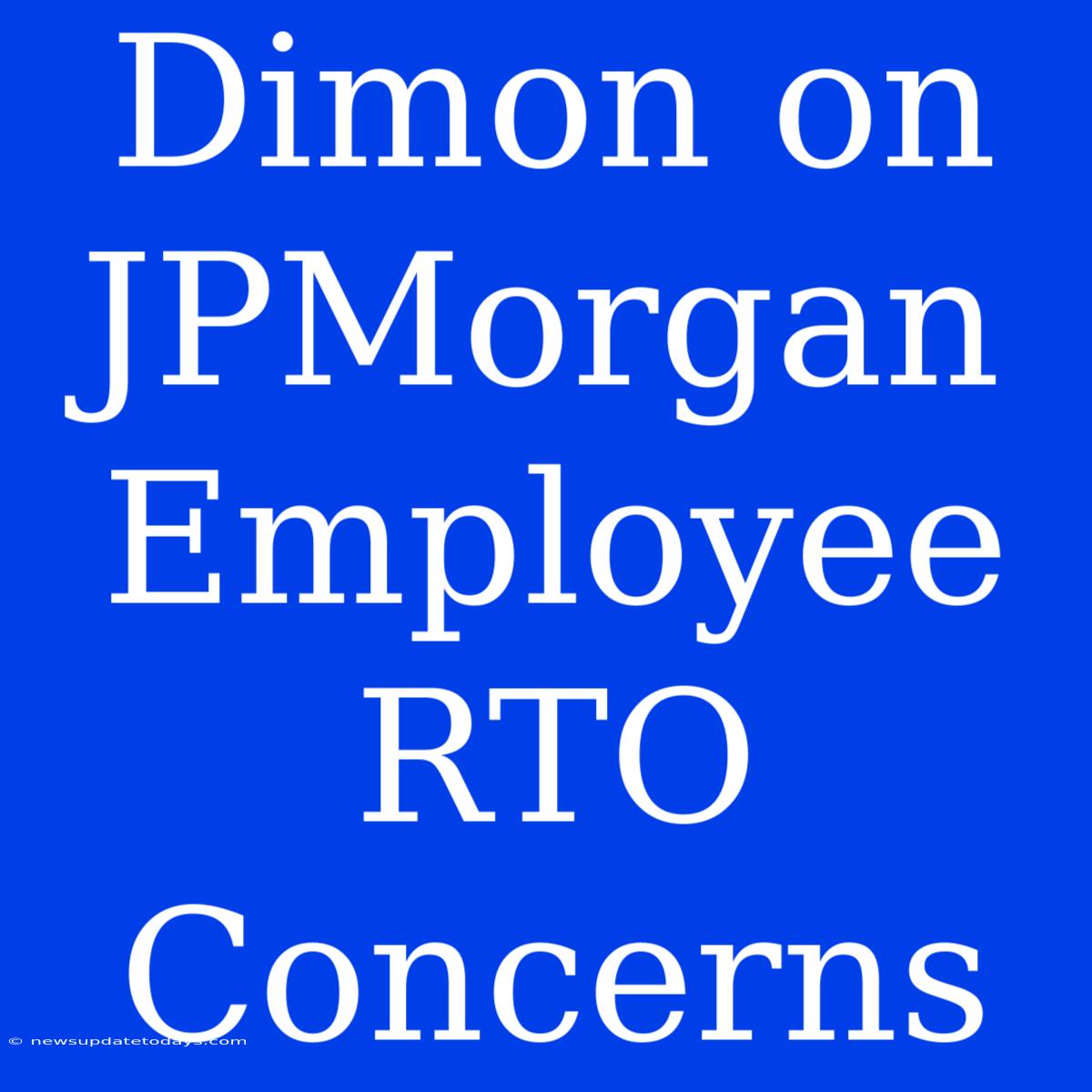Dimon on JPMorgan Employee RTO Concerns: A Deeper Dive into the Return-to-Office Debate
The recent comments from Jamie Dimon, CEO of JPMorgan Chase, regarding employee concerns about the company's return-to-office (RTO) policy have ignited a renewed debate surrounding hybrid work models and the future of the office. Dimon's perspective, while firm in its emphasis on in-person collaboration, also reveals a nuanced understanding of the challenges and benefits of different work arrangements. This article will delve into Dimon's statements, examine the underlying tensions between employer expectations and employee preferences, and analyze the broader implications for the workplace.
Understanding Dimon's Stance
Dimon's position on RTO isn't simply a mandate; it reflects a belief in the value of face-to-face interaction for mentorship, learning, and team cohesion. He's argued that a fully remote workforce hinders these crucial aspects of a successful business environment, particularly for younger employees still developing their careers. His concern isn't solely about productivity, but about the overall culture and development of JPMorgan's workforce.
He emphasizes that the collaborative energy and spontaneous interactions fostered in a physical office are difficult, if not impossible, to replicate remotely. This isn't to say that Dimon rejects remote work entirely; rather, he advocates for a balanced approach that prioritizes in-office presence for optimal performance and employee growth.
Employee Concerns and the Pushback
Despite Dimon's arguments, the pushback from employees is understandable. Many value the flexibility and work-life balance that remote or hybrid work offers. Commuting costs, childcare responsibilities, and personal preferences all contribute to employee anxieties surrounding a mandatory RTO policy. The tension stems from a clash between the perceived benefits of in-person collaboration and the desire for autonomy and flexibility in work arrangements.
This isn't merely a generational divide; employees across various levels and demographics express concerns about the impact of RTO on their well-being and productivity. The debate highlights the need for employers to find a solution that acknowledges both the benefits of in-person collaboration and the desire for work-life integration.
Navigating the Future of Work
The situation at JPMorgan Chase mirrors a larger conversation happening across industries. Companies are grappling with how to balance the need for in-person interaction with employee preferences for flexible work arrangements. There's no one-size-fits-all answer, and the ideal model likely varies depending on the specific industry, company culture, and even individual roles.
Key Takeaways:
- Dimon's perspective underscores the importance of in-person collaboration for mentoring and team building. This is a crucial element often overlooked in the remote work debate.
- Employee concerns regarding work-life balance and commuting costs are valid and cannot be ignored. Finding a compromise is vital for retaining talent.
- The future of work likely involves a hybrid model, striking a balance between in-office and remote work to meet the needs of both employees and employers.
The JPMorgan Chase RTO situation serves as a significant case study in the ongoing evolution of the workplace. Finding a sustainable and equitable solution requires open communication, a willingness to compromise, and a focus on creating a work environment that fosters both productivity and employee well-being. The debate is far from over, and the coming years will likely witness further experimentation and evolution in workplace models.

